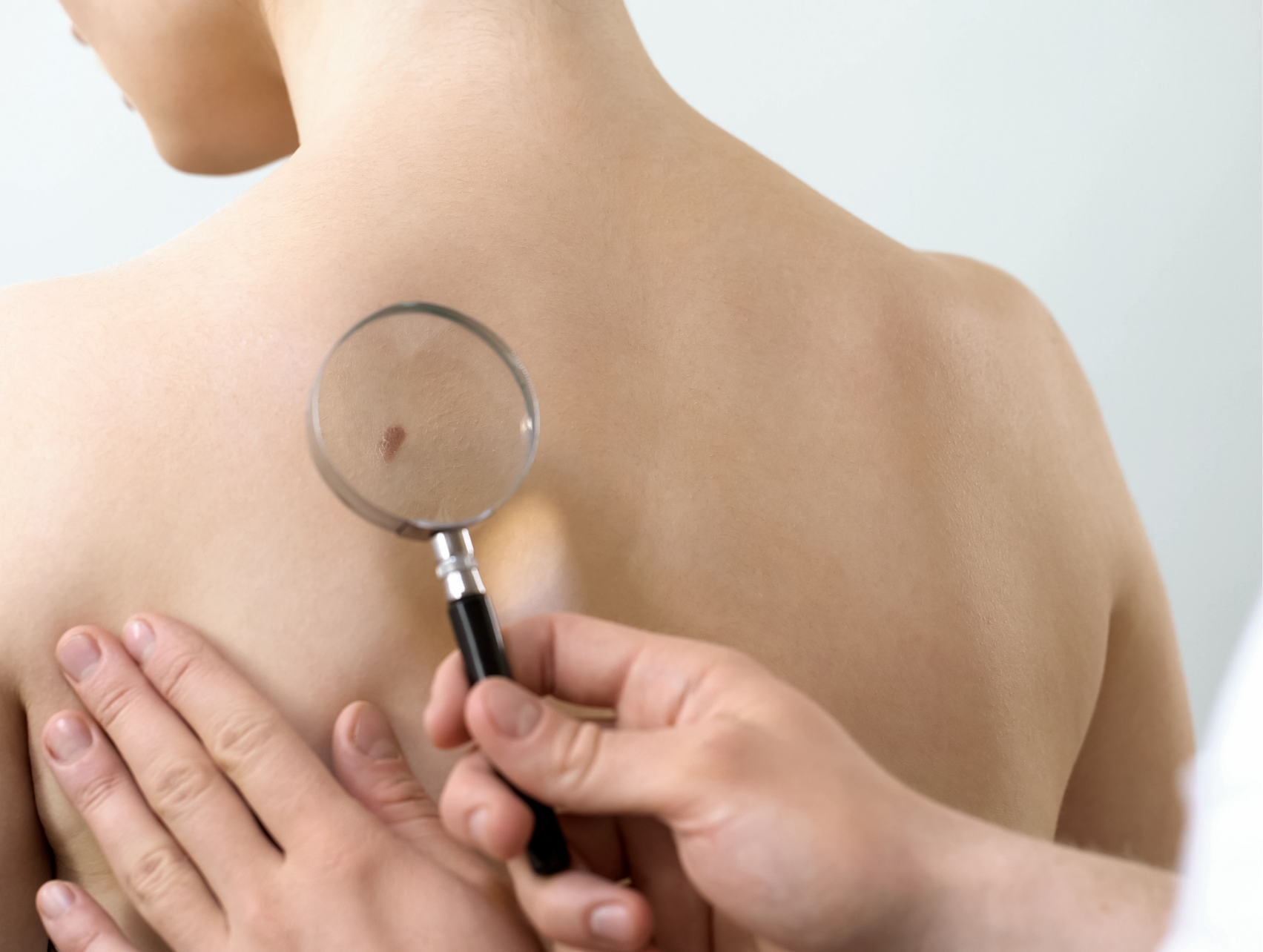
What is Skin Cancer?
Protect your skin with early detection and expert care. At Q Dermatology + Aesthetics Centre, we provide comprehensive skin cancer screenings and treatments using advanced techniques to ensure your health and well-being.
What is Skin Cancer?
Skin cancer is the most common form of cancer in Canada, and it occurs when skin cells begin to grow abnormally. Skin cancer can develop in any part of the skin, but it is most commonly found in areas that are regularly exposed to the sun, such as the face, ears, neck, chest, backs of the hands, arms, and legs.
Types of Skin Cancer
There are three main types of skin cancer:
Basal Cell Carcinoma (BCC)
The most common form of skin cancer, basal cell carcinoma develops in the basal cells of the skin (the lowest layer of the epidermis). It typically appears as a small, shiny bump or nodule on the skin.
Risk Factors: Sun exposure, fair skin, family history of skin cancer, and older age.
Treatment: Surgical removal, cryotherapy, or topical treatments.
Squamous Cell Carcinoma (SCC)
Squamous cell carcinoma develops in the squamous cells found in the upper layers of the skin. It may look like a red, scaly patch, a firm nodule, or an ulcer that doesn’t heal.
Risk Factors: Chronic sun exposure, older age, fair skin, and immune suppression.
Treatment: Surgical excision, radiation therapy, or topical chemotherapy.
Melanoma
Melanoma is the most serious form of skin cancer, affecting the pigment-producing cells called melanocytes. It often appears as an irregular mole or dark spot on the skin that may change in size, shape, or color.
Risk Factors: Sunburns, a history of excessive sun exposure, a family history of melanoma, and having a large number of moles or unusual moles.
Treatment: Surgical removal, immunotherapy, chemotherapy, or radiation therapy.
Signs and Symptoms of Skin Cancer
Recognizing the signs early is key to effective treatment. Watch for the following:
New growths or moles that appear on the skin.
Changes in existing moles, such as asymmetry, irregular borders, multiple colors, large size, or bleeding.
Itching, tenderness, or pain around a mole or growth.
Ulcers or sores that don’t heal.
If you notice any of these changes, it's important to schedule an appointment with a dermatologist as soon as possible.
How is Skin Cancer Diagnosed?
Skin cancer diagnosis typically involves the following steps:
Visual Examination: A dermatologist will examine your skin to look for any unusual growths or changes in moles.
Biopsy: If a suspicious area is found, a biopsy may be performed to confirm whether it is cancerous. This involves removing a small sample of skin tissue for testing.
Imaging Tests: For more advanced cases, imaging tests such as CT scans or MRIs may be used to determine if the cancer has spread.
Treatment Options for Skin Cancer
Treatment for skin cancer depends on the type and stage of the cancer, as well as the patient's overall health. Common treatment methods include:
Surgical Excision: The most common treatment for BCC and SCC, where the tumor is surgically removed along with a margin of healthy tissue.
Mohs Surgery: A precise surgical technique used to remove skin cancer while preserving as much healthy tissue as possible.
Radiation Therapy: Used when surgery is not an option or for treating deeper tumors.
Chemotherapy: For advanced cases of skin cancer, chemotherapy may be used either topically (for superficial cases) or intravenously (for advanced melanoma).
Immunotherapy: A treatment that stimulates the body's immune system to fight cancer cells.
Preventing Skin Cancer
While you can't completely eliminate the risk of skin cancer, there are steps you can take to reduce your chances:
Wear sunscreen with an SPF of 30 or higher, even on cloudy days.
Avoid tanning beds.
Seek shade when the sun is strongest (usually from 10 AM to 4 PM).
Wear protective clothing, such as hats, long sleeves, and sunglasses.
Get regular skin checks with a dermatologist, especially if you have a history of sunburns or a family history of skin cancer.
Skin Cancer Screening and Early Detection
Regular skin checks can help detect skin cancer in its early stages when treatment is most effective. At Q Dermatology + Aesthetics Centre, we offer comprehensive skin cancer screenings. During your appointment, our experienced dermatologists will examine your skin for any signs of abnormalities and discuss ways to monitor your skin health over time.
Why Choose Q Dermatology + Aesthetics Centre?
At Q Dermatology + Aesthetics Centre, our dermatologists specialize in diagnosing and treating skin cancer using the latest, most effective methods. We offer:
Personalized treatment plans tailored to your unique needs.
Advanced technology for accurate diagnosis and treatment.
A caring and professional team committed to your health and well-being.
Schedule an Appointment Today
If you’re concerned about your skin or have noticed any changes, don’t wait. Early detection is crucial for successful treatment. Call us today at 604 359 9632 or Contact Us to schedule a consultation with one of our expert dermatologists.




